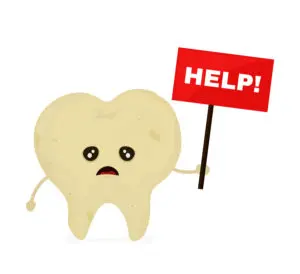 Root canal therapy is a dental procedure that is used to treat a tooth that has experienced a trauma or is severely decayed that has resulted in nerve damage to the tooth. This dental treatment can save you time, money, and most importantly, your tooth.
Root canal therapy is a dental procedure that is used to treat a tooth that has experienced a trauma or is severely decayed that has resulted in nerve damage to the tooth. This dental treatment can save you time, money, and most importantly, your tooth.
Signs You May Need Root Canal Treatment
Your dentist will use a couple of quick methods to help determine if you need a root canal. A light tap on the suspect tooth or a shot of cold air often produce a zinging sensation that offers the first clue. A dental x-ray is taken for the determining factor.
Some of the symptoms you may experience that indicate the need for a root canal (also known as endodontic therapy) include sensitivity to hot or cold, discomfort, swelling, or your tooth may begin to darken. You may have chipped or broken the tooth or decay may have permeated tooth layers until it has damaged the nerve. Whatever the cause, if your dentist recommends a root canal, this is the only treatment available to save your tooth.
The Root Canal Process
The dental x-ray will show your dentist how many roots are involved and their positioning. It is important that all roots are treated for a successful procedure.
The area surrounding the tooth is numbed with a local anesthetic, and the damaged tooth is segregated using a rubber dam. The dental assistant will continually be suctioning the area to remove saliva and the contents taken from the tooth.
A small opening is created in the tooth in order to access the root canals. Using special endodontic files, the dentist removes the contents of the canals made up of nerve, pulp, and blood. Any infection can be extracted as well.
The canals are flushed and depending on the severity of any infection, your dentist may elect to wait to seal the opening to make sure infection has been thoroughly treated. Before sealing the opening, your dentist will place a rubber compound into the canals of the treated tooth.
The final step to treatment involves sealing the opening. In many instances a dental crown is used. The tooth is prepped for the crown and the restoration will be available for seating in about two weeks.
Taking care of all your teeth involves daily brushing and flossing; and visits with our team at Crosspointe Dental & Orthodontics on a regular basis will help you maintain great dental health.







